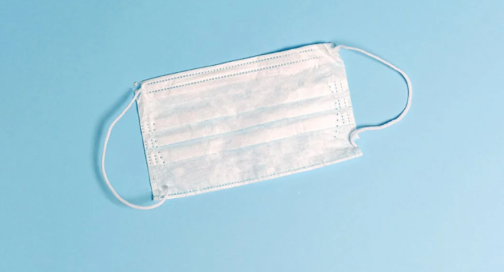SLEEP DEPRIVATION AMONGST HIGH SCHOOL STUDENTS

We think of a day as having 24 hours in it. When we decide to do something that will take two hours we justify it by saying “Oh it’s only 1/12th of the day.” But most of our days aren’t 24 hours. If you’re getting your 8 hours of recommended sleep, the time you have in your day to get stuff done is closer to 16. With that in mind, a two-hour activity seems like more of a commitment when it takes up 1/8th of your day. That is of course if you’re getting your 8 hours of sleep. I’m sure you know, especially if you are one, most teenagers do not. Most of us get closer to seven and some of us get even less.
There are several reasons for this. The most frequently accused culprit is the United States education system, which bears a lot of responsibility. 93% of high schools start before 8:30. This is although most teenagers have an innate desire to stay up later into the night, and wake up later in the day as a result of melatonin, a hormone that facilitates sleep, being released by the body later in the day during puberty. That’s not to mention all the school work assigned, which often requires students to stay up late to get it all done. A lot of this work could be completed during the day, but if you participate in any after-school activities like sports, clubs, a job, or have a social life outside of school, you have to leave the schoolwork for later. And for a lot of us, later means 2:00 a.m. Some Westfield students have made suggestions on what our school could be doing differently to help them get better sleep. These suggestions include assigning less work on computers, creating a designated block where students can rest during the day, and altering the school schedule so that it starts and ends later in the day.
But it’s not just the schools that are at fault. We are all to some degree responsible for our sleep schedules, and our behavior makes it harder for us to get good sleep. Every student I interviewed for this article said they often found themselves staring at screens within the hour before they went to bed. A large reason for this is, as mentioned earlier, our schools assign a lot of homework that we stay up late doing, most of which requires you to be on a computer. But let’s be honest guys, if you have a phone within reach you probably find yourself checking social media or playing a quick game of Subway Surfer right before you clock out. This is problematic because most of our devices with screens project blue light. This blue light disrupts our body’s production of melatonin. So even if you get 8 hours of sleep, if you were scrolling through your phone right before you dozed off, those 8 hours won’t be as restful as they would have been otherwise. While issues with the education system will take lots of people working very hard to solve, these are problems we are each capable of solving, or at least mitigating for ourselves.
All of these problems stem from a similar source, which is that we, as a society and individuals, value productivity over sleep. We think we need to be productive during our time for that time to matter, and because of this, we think of sleep as a time when we don’t get anything done. We are more likely to sacrifice an hour to complete assigned work or watch another YouTube video. Sleep can be viewed as a detriment to our productivity; something to work our schedules around when, in reality, sleep is essential to our productivity. It needs to be incorporated into our schedules. Although an hour of sleep deficiency may not seem significant, is it worth what are you doing in that hour? And yeah, sure, for one night it might not matter, but over time, those hours add up. Even though we are incapable of experiencing it consciously, we get a lot done in the time we spend asleep.
Sleep is when our body takes the time to repair damaged cells, fight off infection, and release hormones and proteins that are essential to our physical development. All of these things take time, so when we don’t get enough sleep, our body suffers the consequences. According to the Centers for Disease Control and Prevention, sleep disorders are so prevalent in the United States that they are now a public health epidemic. Every negative condition you can think of is made worse by a lack of sleep: heart attacks, cancer, car accidents, diabetes, obesity, and strokes.
When asked how lack of sleep affects them physically, the responses recorded from Westfield students include stomach pain, less energy to work out, and a general inability to function. But sleep is more than our body’s opportunity to recharge our biological battery, it’s the only break we get from our self-awareness. We may not include sleep as a part of our day because we are not conscious. Although, a human’s dream, that’s different from actively thinking about who you are, where you are, what you have to do tomorrow, what’s going on in the world, and who you want to be. Asking those questions is a fundamental part of the human condition, but we all need a break from that condition, especially teenagers. So when we are robbed of our sleep it becomes easier to overthink and dwell on those thoughts, which leads to many of us becoming depressed, anxious, or stuck in self-destructive cycles of our neuroses. When asked how lack of sleep affects them mentally, the responses recorded from Westfield students include difficulty thinking and interacting with others, difficulty focusing, and decreased motivation. Unsurprisingly, this makes it harder to get things done during the day.
Sleep isn’t for the weak, in the same way, that food and water aren’t for the weak. We can’t live without sleep, and we are crippling ourselves as a society, and as individuals, by treating ourselves as efficient machines that don’t need to rest. No one is above or below a good night’s sleep, and you owe it to yourself to get it. Good night, and sweet dreams.

I’ve got a lot of ideas, too many ideas, so I’m always very active during brainstorming sessions, and when someone else is depending on me to bring...



